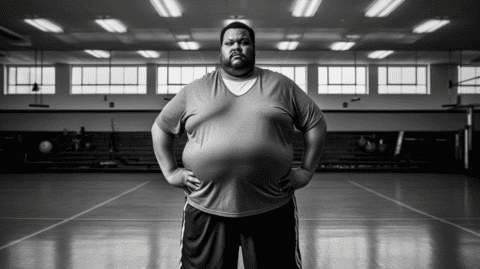Weight loss surgery, particularly gastric bypass, is a life-changing decision that demands much thought and consideration. Unfortunately, misconceptions and myths surrounding the procedure can make the decision-making process even more challenging. In this article, we aim to debunk some of these gastric bypass myths, replacing them with the reality that so many Dallas residents have experienced firsthand.

Myth #1: Gastric bypass is the ‘easy way out’
The decision to undergo gastric bypass surgery is far from an ‘easy way out.’ The procedure demands significant lifestyle changes post-surgery. Patients must adhere to a strict diet and regular exercise routine, and adjustments to their new bodies can take time. Moreover, the emotional adjustment can be equally challenging. Gastric bypass surgery is a tool, not a miracle cure. It empowers people to regain control of their health, but they still must put in the work.
Myth #2: Gastric bypass results in unhealthy or unnatural weight loss
Gastric bypass surgery aids in weight loss by reducing the stomach’s size, which leads to a feeling of fullness with less food intake. The procedure also reroutes the digestive tract to reduce calorie absorption. This method is neither unhealthy nor unnatural; it’s a scientifically proven technique for sustainable weight loss.
Myth #3: Gastric bypass surgery is extremely dangerous
Like any surgical procedure, gastric bypass carries some risks. However, with advancements in medical technology and pre-operative evaluation, it has become much safer. Complications are relatively rare, and the team at Peak Bariatric ensures that patients are thoroughly evaluated for surgical risks before proceeding.
Myth #4: Everyone regains weight after the surgery
While some people may regain weight, it’s not a given. Post-surgical weight gain is often linked to a return to unhealthy eating habits or a lack of exercise. With the right post-surgical plan, including diet, exercise, and follow-up appointments, patients can maintain their weight loss.
Myth #5: Gastric bypass is only about losing weight
While weight loss is a significant part of the process, the benefits extend far beyond the scale. Patients often see improvements in obesity-related conditions such as type 2 diabetes, hypertension, and sleep apnea. Therefore, gastric bypass isn’t just about losing weight; it’s about improving overall health.
Myth #6: You don’t need to exercise after gastric bypass
On the contrary, regular physical activity is essential after gastric bypass. Exercise aids in weight loss, improves cardiovascular health, and promotes better mental health. It’s a crucial component of a successful post-surgical lifestyle.
Myth #7: Gastric bypass surgery is reversible
Unlike procedures like the gastric band, gastric bypass surgery is typically not reversible. While it is technically possible to reverse the surgery, the process is complicated and carries considerable risks. It’s essential to understand this before committing to the procedure.
Myth #8: Gastric bypass leads to alcoholism
There have been instances where patients developed alcohol issues post-surgery, but this is not the norm. However, alcohol can be more potent after gastric bypass, so it’s crucial to consume it responsibly. Communication with your healthcare provider is key in managing such risks.
Myth #9: You can never get pregnant after gastric bypass
Gastric bypass surgery does not prevent pregnancy. In fact, weight loss can improve fertility. However, it’s usually recommended to wait at least 18 months post-surgery to get pregnant, as rapid weight loss could potentially affect a developing fetus.
Myth #10: It’s better to attempt natural weight loss than opt for gastric bypass
While diet and exercise are indeed crucial, they might not be enough for everyone, especially for those struggling with severe obesity. Gastric bypass surgery is a tool that can aid in significant weight loss when other methods haven’t been successful.
Knowledge is power, and understanding the truths behind these myths can empower patients to make informed decisions about their health. Gastric bypass surgery is a transformative procedure that has improved the lives of countless Dallas residents. It’s about more than just weight loss; it’s about regaining control over one’s health and living a fuller, healthier life.
As we move into the future, the field of bariatric surgery continues to evolve and innovate. The more we learn, the more effectively we can dispel these myths and misconceptions. Gastric bypass is an excellent tool in the battle against obesity, and we must continue striving to educate and inform potential patients about its realities.
Remember, the journey towards better health begins with a single step. If misconceptions about gastric bypass surgery have held you back, perhaps it’s time to take that step today. Your healthier future awaits.






